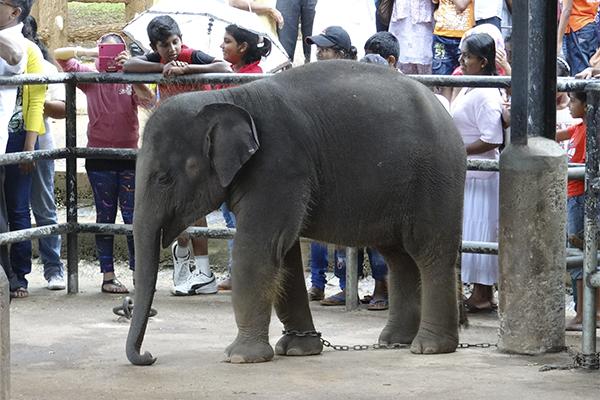Tourism and Animals

In an increasingly urbanized world, many of us live isolated from nature and it is therefore understandable that we feel attracted to experience nature in our leisure time. However, depending on the leisure activity we choose, our decision can seriously have an impact upon animals. Currently there are a multitude of touristic offers using interaction with wild animals as a reclaim.
It is vital to learn to understand animals, and to discover their role in the ecosystem into which they have adapted after years of evolution. In the vast majority of planned activities where animals are the focus, the only thing we see are individuals taken away from their natural habitat and placed into an artificial one where they suffer and are forced to perform behaviours improper of their species.
Encounters with animals should reconnect us with nature, remind us that we are part of it and that we share this Planet with other living beings that have the same right as we do to be here. We have a moral obligation towards animals and we owe them respect.
Using animals for entertainment purposes causes serious problems to the welfare of the animal and, in some cases, for the species conservation. In captivity, one of the most extreme form of entertainment, animals suffer continuously, permanently and in countless cases this situation leading them to a premature death.
The values that are transmitted by using animals for these purposes reflect a belief that animals are here for our amusement and exploitation, not only degrading them but also desensitizing society towards acts of cruelty. We should not forget that for many the use and exhibition of wild animals is a business looking for economic profit. This profit is above animals’ biological, physical, behavioural and emotional needs. Since 1979, due to Brambell’s report, there were recognised in the European Union the Five Freedoms to guarantee a minimum of animal welfare:
- Freedom from hunger or thirst
- Freedom from discomfort
- Freedom from pain, injury or disease
- Freedom to express normal behaviour
- Freedom from fear and distress
Although these five freedoms are recognised worldwide, its application can be hardly accomplished in activities in which animals have been taken away from their natural habitat, live in captivity, are physically punished and/or are forced to go through stressful situations.
An increasing concern for animal, environmental and social issues starts influencing the decisions tourists make regarding activities involving wild animals. As tourists we have the power to improve the lives of animals and stop contributing to activities that are offered under a fake appearance of respect towards animals. Work must be done to minimise the impact of the touristic sector towards nature and animals and promote a responsible industry that is willing to restructure its activities.
Nowadays it can be easily found a wide variety of alternatives that allow us to meet and get closer to animals in a responsible way. There are numerous documentaries, movies, videos and webcams located in natural habitats or rescue centres that make easier to get closer to animals in their natural habitat, non-negotiable condition to understand nature and the rest of creatures that we share the Planet with. Thanks to these resources our fascination for nature can be satisfied without the need of keeping animals in captivity. Raising awareness of animals’ life by respecting them means a new point of view that allows us discover the hard reality that these living beings suffer: they are an object of negotiation and an economic profit.
Rescuing wild animals from abusive situations is extremely difficult as there are no public facilities to relocate them, and the few private facilities do not have enough resources to accommodate all the animals in need. Be a responsible tourist and help us avoid the need of rescuing these animals from a life of deprivation and suffering by not participating in activities that would increase the demand.
FAADA questions the captivity and entertainment industry using animals both on a national and European level, we investigate cases of neglect or abuse, expose the suffering and exploitation of wild animals, we campaign for the adoption of stricter laws to protect them and want to create awareness among all stakeholders.
Complete dossier
Download our complete dossier in pdf format. (10.5Mb)
